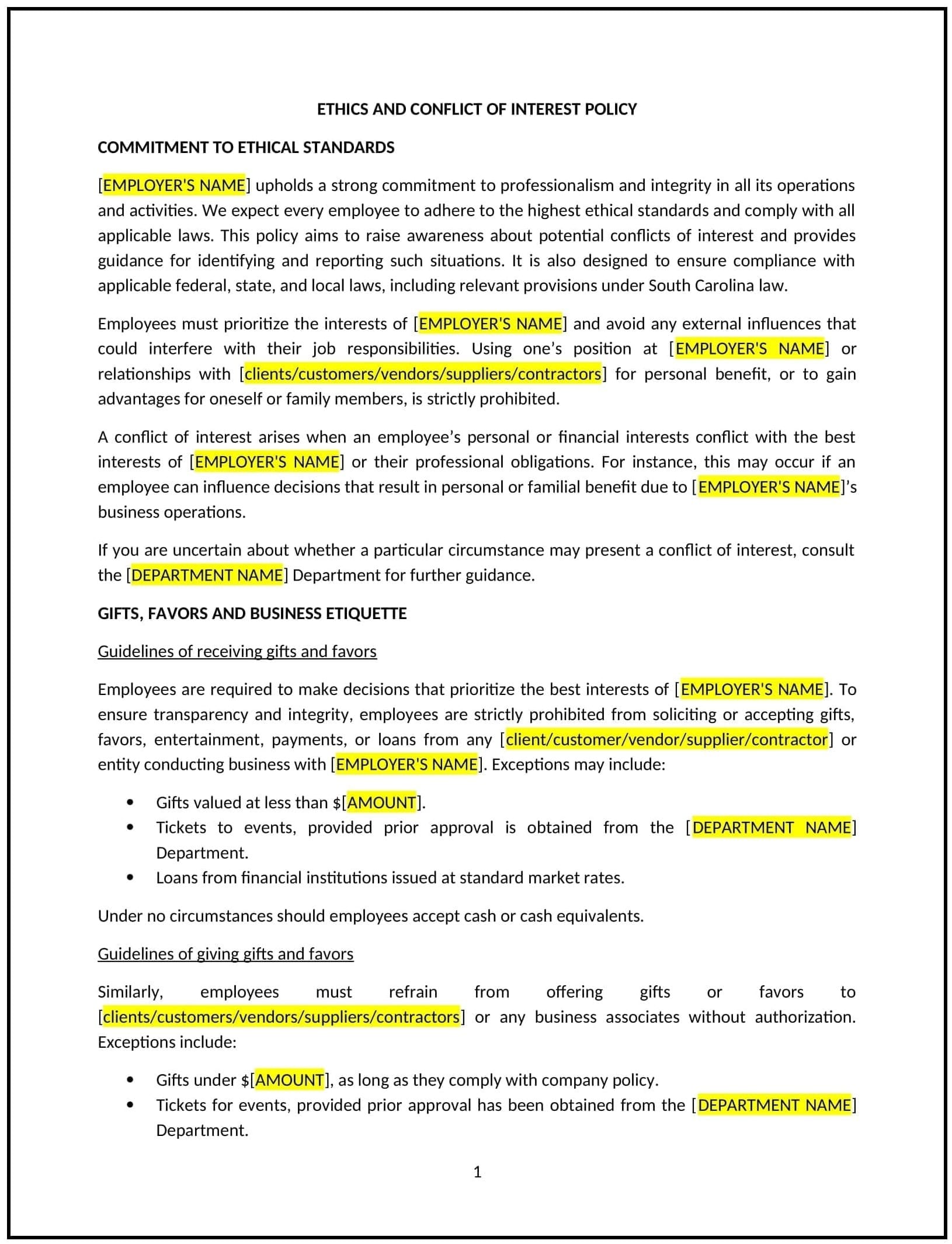Ethics and conflict of interest policy (South Carolina): Free template
Got contracts to review? While you're here for policies, let Cobrief make contract review effortless—start your free review now.

Customize this template for free
Ethics and conflict of interest policy (South Carolina)
This ethics and conflict of interest policy is designed to help South Carolina businesses establish guidelines for maintaining ethical standards and addressing conflicts of interest in the workplace. It outlines expectations for employee behavior, procedures for disclosing conflicts, and steps for resolving ethical concerns.
By adopting this policy, businesses can promote integrity, build trust with stakeholders, and align with general best practices for ethical business operations.
How to use this ethics and conflict of interest policy (South Carolina)
- Define ethical standards: Explain the importance of integrity, honesty, and transparency in all business dealings.
- Address conflicts of interest: Provide examples of conflicts, such as personal relationships or financial interests that may influence business decisions.
- Establish disclosure procedures: Outline steps for employees to disclose potential conflicts of interest to management or HR.
- Set resolution processes: Describe how conflicts of interest will be evaluated and resolved to ensure fairness and transparency.
- Train employees: Educate staff on ethical standards, conflict of interest scenarios, and their responsibilities for maintaining integrity.
- Review and update: Assess the policy annually to ensure it aligns with evolving business needs and ethical standards.
Benefits of using this ethics and conflict of interest policy (South Carolina)
This policy offers several advantages for South Carolina businesses:
- Promotes integrity: Encourages employees to act ethically and transparently in all business dealings.
- Builds stakeholder trust: Demonstrates a commitment to ethical practices, enhancing relationships with customers, partners, and investors.
- Aligns with best practices: Provides a structured approach to managing conflicts of interest and ethical concerns.
- Reduces risks: Minimizes the potential for unethical behavior or legal disputes related to conflicts of interest.
- Supports accountability: Ensures employees are held to high ethical standards and conflicts are resolved fairly.
Tips for using this ethics and conflict of interest policy (South Carolina)
- Communicate the policy: Share the policy with employees and include it in the employee handbook.
- Provide training: Educate staff on ethical standards, conflict of interest scenarios, and their responsibilities for maintaining integrity.
- Monitor adherence: Regularly review business practices to ensure compliance with the policy.
- Address issues promptly: Take corrective action if conflicts of interest or ethical concerns are reported.
- Update regularly: Assess the policy annually to ensure it aligns with evolving business needs and ethical standards.